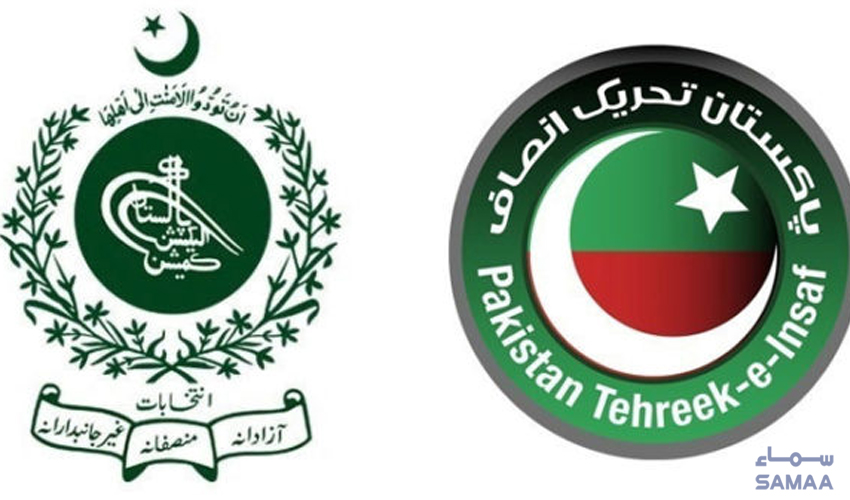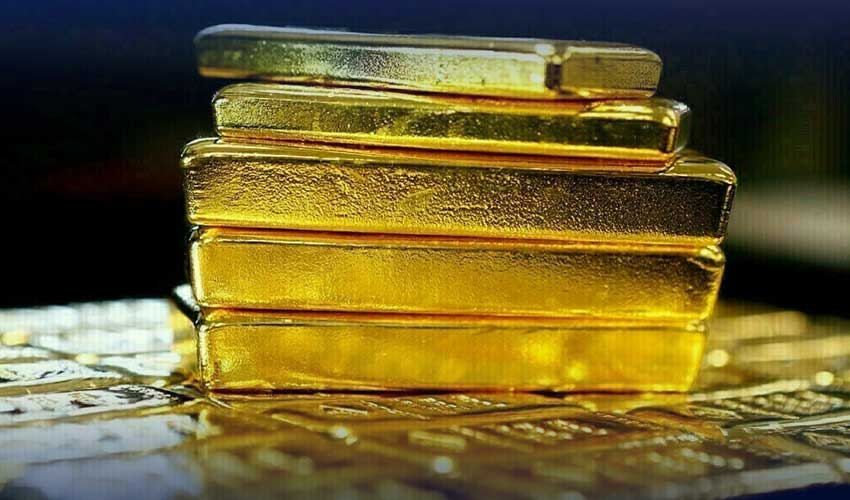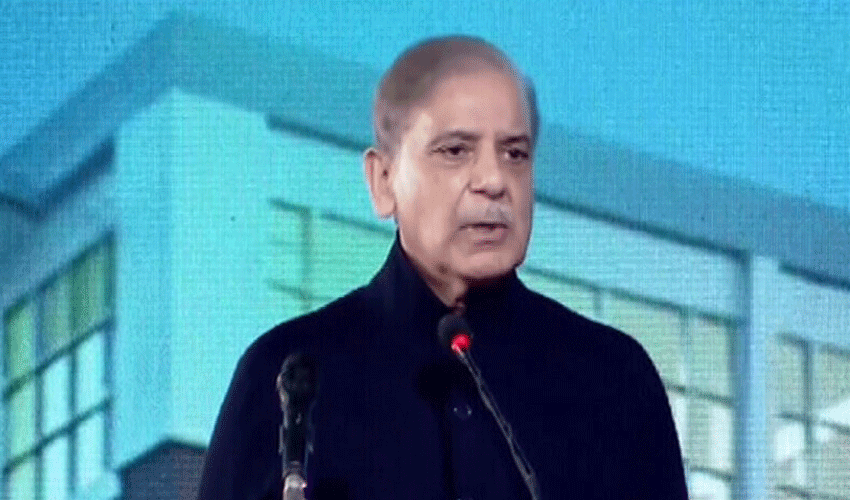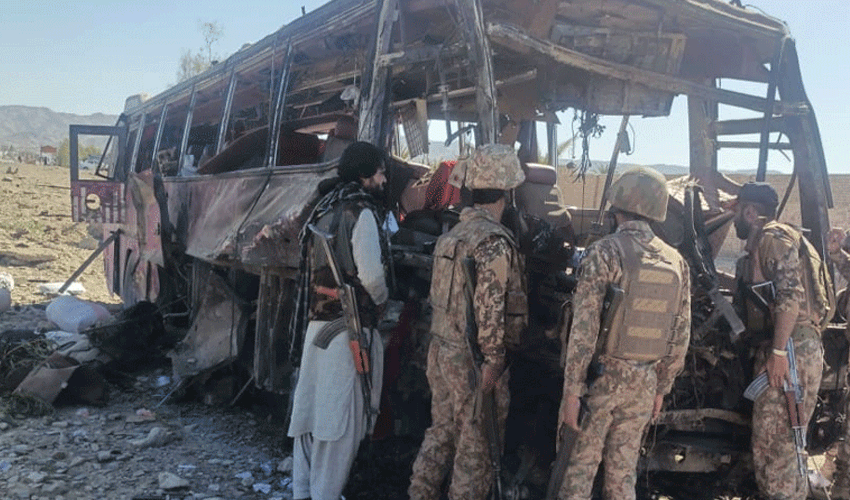The Peshawar High Court has issued a stay order on an application of the Pakistan Tehreek-e-Insaf (PTI) and suspended the decision of the Election Commission of Pakistan (ECP) to nullify the PTI’s intra-party election and withdraw its bat symbol.
The court also issued notices to all the parties and sought their replies. The order stated that the general elections will be held on February 8, while election symbols will be allotted to political parties on January 13.
Keeping these developments in mind, the court should fix this petition for hearing before a bench soon, the single bench ruled.
The Pakistan Tehreek-e-Insaf (PTI) has launched a legal fight to regain its iconic 'bat' symbol, after the Election Commission of Pakistan (ECP) annulled its intra-party elections and revoked the symbol.
A single bench of the high court comprising Justice Kamran Hayat Miankhel is hearing the petition. On behalf of the PTI, Barristers Ali Zafar and Gohar Ali Khan appeared in court.
Senator Zafar told the court that the election commission overstepped its authority, adding that the party’s election was held on December 2 on the instructions of the election commission.
The election commission did not object to the intra-party election, Barrister Zafar told the court, adding that the ECP’s objection was that the appointment of the person who conducted the elections was not legal.
The lawyer also claimed that the PTI was a popular political party of Pakistan, and after its electoral symbol was withdrawn it became inactive. He called the ECP’s decision illegal.
Barrister Zafar questioned how parties can participate in the elections without electoral symbols. He further said the party will also not get the special seats of the assemblies either.
Justice Hayat asked Ali Zafar whether the election commission's objection was how the general secretary appointed the chief election commissioner.
The lection commission's decision was a violation of Article 17 of the Constitution, Barrister Ali Zafar told the court, adding that Article 17 authorized the organization of associations.
Justice Hayat asked Ali Zafar who the people challenging the party elections were. The lawyer told the court that those who made the intra-party election controversial and challenged it were not party members.
The judge remarked that according to the election commission, the PTI did not appoint its chief election commissioner according to the party constitution. He then asked what the punishment would be if that were true.
Ali Zafar said it stipulated a penalty of Rs200,000 on the party. He added that the ECP did not have the authority to decide on internal appointments of a party.
According to the Elections Act 2017, a party head provided a certificate to the election commission after seven days of the appointment. The ECP is a post office where parties submit their legal documents, he commented.
If a party provides the certificate, it becomes the authority of the election commission, Zafar said, adding that it was not mentioned in the Elections Act that the election commission can take suo motu notice and use appointments as excuses to nullify a party’s election and withdraw electoral symbols.
The counsel said lawmakers have not given this authority to the ECP. The Supreme Court has told the Election Commission of Pakistan that it was not a court of law.
Justice Hayat asked where the election commission has the authority, asking under which law the ECP rejected the party’s intra-party certificate. “If they can’t conduct intra-party elections, what will be the punishment and fine?” asked the judge.
He further asked what was written in the party rules regarding intra-party elections.
According to party rules, the chairman is elected by secret ballot, Ali Zafar told the court. The judge then asked, if the party had violated the rules, which law authorized the election commission to take action.
The ECP has no authority to interfere in the internal affairs of a party, Ali Zafar replied.
The additional attorney general opposed the PTI’s request to suspend the election commission’s decision on the intra-party poll. He then suggested formation of a division bench, saying it was not a case for a single bench.
The election symbol will be allotted on January 10, he further said, adding that court holidays will end on January 8, after which the case will be heard.
“You have kicked out a political party,” Justice Hayat remarked.
The judge asked how many political parties were there in the country, and how many cases were pending with the election commission, because all of them should be decided.
The additional advocate general requested the court to form a special bench.
The court remarked that it was the discretion of the chief justice to form a bench.
It also remarked that if the arrow symbol was taken away from the PPP, lion from the PML-N and the Jamaat-e-Islami symbol from the party, what would be left behind.
The petition
Barrister Gohar Khan, representing the PTI, filed the petition in the Peshawar High Court, seeking to overturn the ECP's decision. He said they hoped the petition will be fixed for hearing today.
The petition argues that the ECP's decision to nullify the PTI's intra-party elections and withdraw the bat symbol is "illegal and unconstitutional". PTI lawyers contend that the elections were conducted fairly and transparently, and the ECP's intervention undermines internal party democracy.
The petition maintains that the election commission did not have the authority to rule regarding the method of conducting intra-party elections, adding that those who challenged the PTI elections were not even party members.
The petition has made the election commission as well as the petitioners challenging the party's intra-party poll parties.
It further states that the election commission declared the PTI intra-party elections null and void and withdrew the election symbol of bat. The high court has been requested to constitute a bench consisting of senior judges and appoint it for hearing today.
This urgency to hear the case stems from the upcoming February general elections, in which PTI wants to contest with its bat symbol.
The ECP's decision stemmed from complaints about irregularities in PTI's intraparty elections. The commission found inconsistencies in voter lists and raised concerns about transparency in the process. However, the PTI maintains that these claims are baseless and politically motivated.
'PTI getting nothing, let alone level playing field'
Speaking to the media outside the court, the PTI lawyers said the party was not being given anything, let alone a level playing field.
Barrister Gohar said if a party does not have an election symbol, it practically stands dissolved, and called the practice illegal and unconstitutional. “If the PTI does not get the election symbol, it cannot get its share in the 227 special seats in the National Assembly,” he stressed.
The Supreme Court has repeatedly said that it is a party's right to fight on its own symbol, he said further.
Barrister Ali Zafar said the first platform against the decision was the high court and then the Supreme Court. “We hope a decision will be made according to the law and the Constitution," he remarked.
Barrister Gohar said the court should suspend the decision of the election commission.
Key points:
- PTI has filed a petition in the Peshawar High Court challenging the ECP's decision to annul its internal elections and withdraw the bat symbol.
- PTI argues the ECP's decision is "illegal and unconstitutional."
- The party is pushing for an early hearing, hoping to contest the 2024 elections with the bat symbol.
- The outcome of the legal battle could have significant implications for PTI and the upcoming elections.



























